Medical Education Grand Rounds
The Medical Education Grand Rounds Series is intended for faculty, staff, residents, and students interested in enhancing their teaching related to clinical and basic sciences, developing their skills in educational scholarship, and learning about educational innovations.
Open to all UVM Larner College of Medicine faculty at all teaching sites in the University of Vermont Health Network. Faculty, staff, residents, and students are invited to these workshops showcasing speakers from around the country who bring fresh ideas and thought-provoking insight to teaching sciences.
All sessions have a Zoom option, unless noted. Recordings of previous presentations are available upon request.
CME credit is available!
 In support of improving patient care, The Robert Larner College of Medicine at The University of Vermont is jointly accredited by the Accreditation Council for Continuing
Medical Education (ACCME), the Accreditation Council for Pharmacy Education (ACPE), and the American Nurses Credentialing Center (ANCC), to provide continuing education for the healthcare team.
In support of improving patient care, The Robert Larner College of Medicine at The University of Vermont is jointly accredited by the Accreditation Council for Continuing
Medical Education (ACCME), the Accreditation Council for Pharmacy Education (ACPE), and the American Nurses Credentialing Center (ANCC), to provide continuing education for the healthcare team.
The University of Vermont designates this live activity for a maximum of 1 AMA PRA Category 1Credit(s)TM. Physicians should claim only the credit commensurate with the extent of their participation in the activity. Credit is claimed online at My Credits.
Please RSVP to teaching.academy@med.uvm.edu to attend a session.
For more information, or to contribute suggestions for future sessions, contact teaching.academy@med.uvm.edu
Upcoming Presentations 2024-2025
Challenges and Opportunities for Wellbeing in Healthcare
Friday, September 20, 2024
12:00-1:00pm; Med Ed 300 (Reardon Classroom)
 Marcelo Bento Soares, PhD Marcelo Bento Soares, PhD
Professor and Head, Cancer Biology and Pharmacology; Professor of Psychiatry & Behavioral Medicine; Professor of Neurosurgery; Senior Associate Dean for Research, University of Illinois College of Medicine Peoria
This session will address factors contributing to burnout in healthcare and the consequences of depersonalization and disconnection. Learn strategies for developing emotional regulation and wellbeing skills. |
Unscripting Yourself: The Role of Improv in Medical EducationFriday, October 25, 2024
12:00-1:00PM; Med Ed 300 (Reardon Classroom)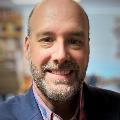 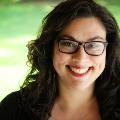 Jeremiah Dickerson, MD Jeremiah Dickerson, MD
Assistant Professor of Psychiatry; Residency Program Director
Zeina Salame, PhD, MS, MA
Assistant Professor of Theatre Improvisation has been shown to improve communication capacities, teamwork, tolerance of uncertainty, attentive observation, empathy, well-being, and creativity – skills and values that are important to cultivate in learners across all fields of medicine. In this workshop, the tenets of improv will be explored and applied interactively, so that participants can experience some ‘unscripting’ and reflect how improv techniques can be effectively brought into the clinical and teaching spaces. *Due to the interactive nature of this session, there will be no Zoom option |
Professionalism and Professional Identity Formation in Medical EducationFriday, November 15, 2024
12:00-1:00PM; Med Ed 100 (Larner Classroom)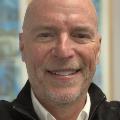 James F. Smith, Jr., MD, DBe, FACOG James F. Smith, Jr., MD, DBe, FACOG
Professor of Medical Education and Medical Humanities; Creighton University School of Medicine
This session will provide an interactive environment for exploring how professionalism and professional identity formation influence, and in turn are influenced by, learning and the learning environment in medical education. |
The Transformative Power of Restorative Justice in and Beyond Academic MedicineFriday, December 6, 2024
12:00-1:00PM; Med Ed 100 (Larner Classroom)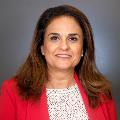 Leila Amiri, PhD Leila Amiri, PhD
Associate Dean for Admissions
Assistant Professor of Psychiatry
In the complex environment of academic medicine, conflict, harm, and burnout are common challenges. This presentation explores how restorative justice principles offer a robust framework for addressing harm, fostering reconciliation, and promoting collective healing within medical institutions. Beyond resolving conflicts, restorative justice enables healers to embark on their healing journey, creating a more compassionate, inclusive culture. We’ll also explore how these principles resonate outside of academic medicine, demonstrating their broader impact on community well-being and interprofessional collaboration. Join us as we examine how those who care for others can heal themselves, creating ripples of transformation that extend far beyond the walls of academia.
|
Gen Z in Medical Education: 6 Critical Areas for Reflection on Professionalism, Teaching, and Learning in Health Professions TrainingFriday, February 7, 2025
12:00-1:00PM; Zoom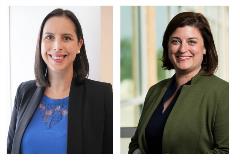 Stefanie Attardi, PhD, Associate Anatomy Professor at Oakland University William Beaumont School of Medicine Stefanie Attardi, PhD, Associate Anatomy Professor at Oakland University William Beaumont School of Medicine
Kara Sawarynski, PhD, Assistant Dean for Accreditation and Continuous Quality Improvement at Oakland University William Beaumont School of Medicine
This session will help medical education stakeholders understand the four major generations in training and explore generational research to better appreciate Gen Z’s experience in current programs. The session will culminate with the 6 Critical Areas for Reflection tool, designed to help stakeholders collaboratively define and refine key elements of modern medical education, fostering effective strategies to engage, teach, and learn alongside Gen Z. Disclosure Information |
The Role of Faculty Development in CBME: Lessons from Pathology’s Journey to incorporating EPAsFriday, March 7, 2025
12:00 - 1:00 PM; Med Ed 300 (Reardon Classroom) Bronwyn Bryant, MD Bronwyn Bryant, MD
Associate Professor, Pathology and Laboratory Medicine; Ernest Hiram Buttles Chair of Pathology and Laboratory Medicine; Associate Program Director, Pathology Residency Program; Section Medical Director, Gynecologic Pathology
Workplace-based assessments, such as EPAs, are essential tools in competency-based medical education and assessment. Using these assessment models can be a substantial culture shift and requires robust faculty development. Hear about pathology’s journey to incorporating EPAs in CBME, and the essential role faculty development played. |
Frymoyer Showcase
Friday, April 4, 2025
12:00 - 1:00 PM; Med Ed 300 (Reardon Classroom)1. Jennifer Covino, MD; Assistant Professor of Pediatrics
“Improving Newborn Resuscitation in the Community Hospital Setting with Physician-Nurse Led Distributed Practice of Simulation and Structured Debriefing”
2. Katie Wells, MD, MPH; Assistant Professor of Emergency Medicine
“Building an Interdisciplinary Gender Affirming Care Model in the Emergency Department”
Through the Frymoyer Scholars Program, the John W. and Nan P. Frymoyer Fund for Medical Education supports physicians and nurses who are actively engaged in teaching University of Vermont medical and nursing students who embody the best qualities of the clinician teacher. The program is an investment in outstanding medical education and promotes teaching that emphasizes the art of patient care. This session will showcase a few of the many Frymoyer Scholars Program recipients and their projects. |
TBDFriday, May 2, 202512:00-1:00 PM; Med Ed 300 (Reardon Classroom) |
Past Speakers (by academic year)